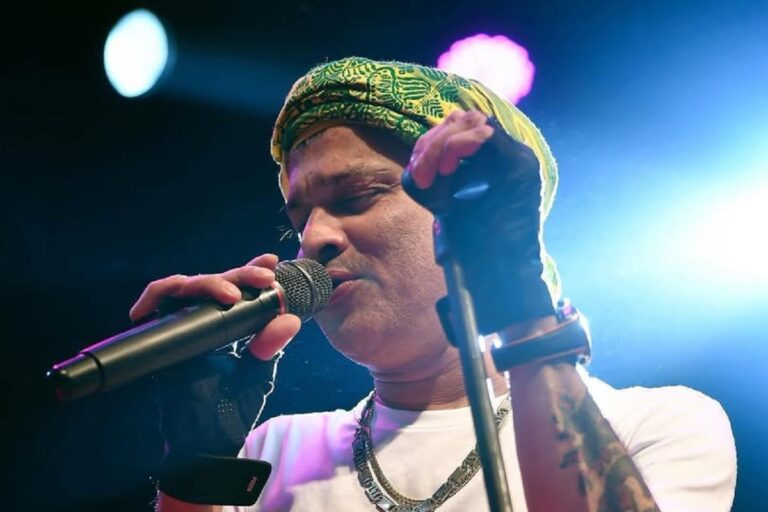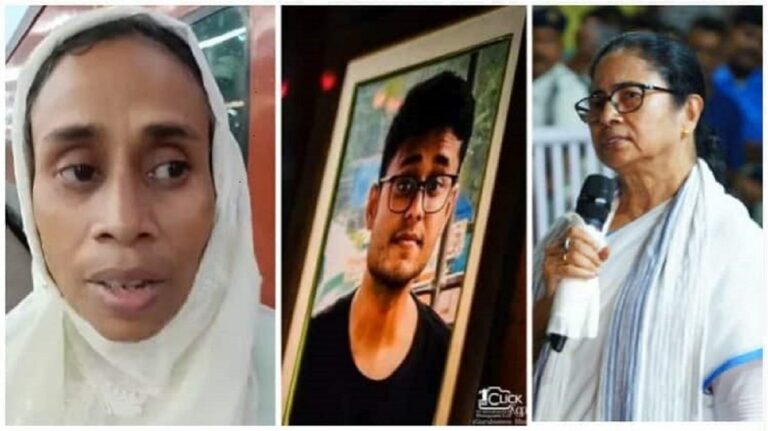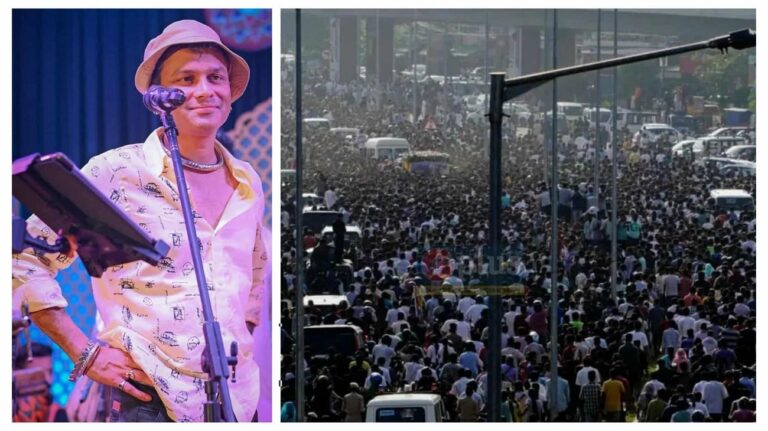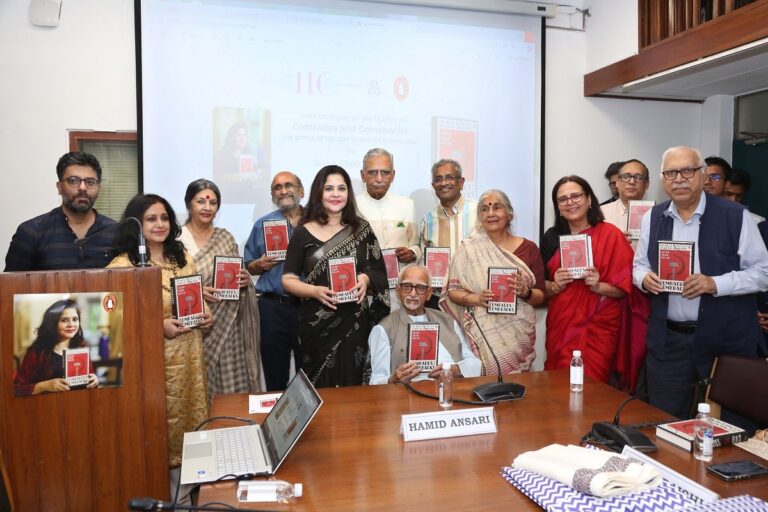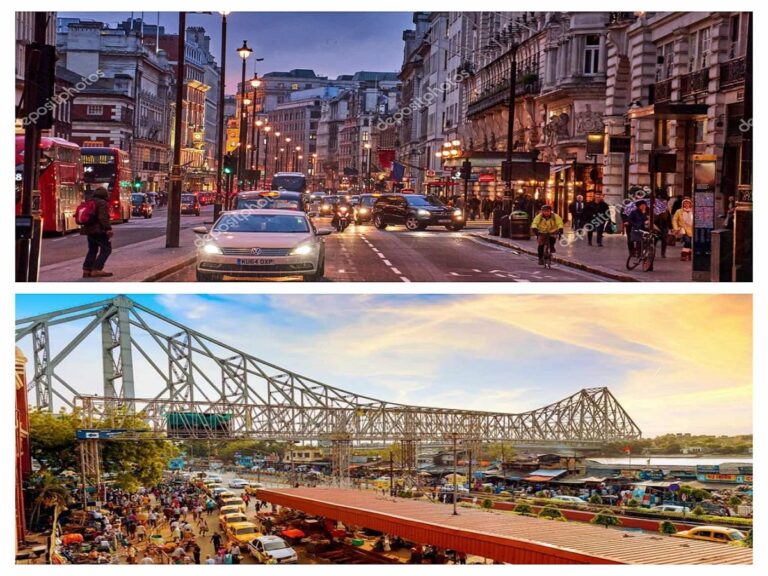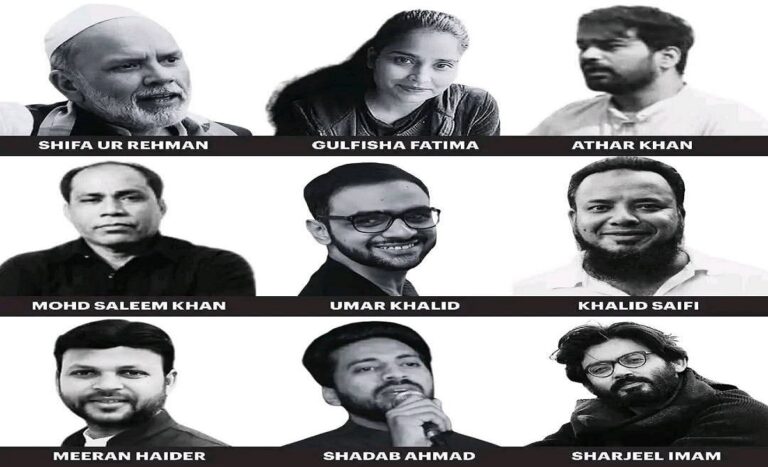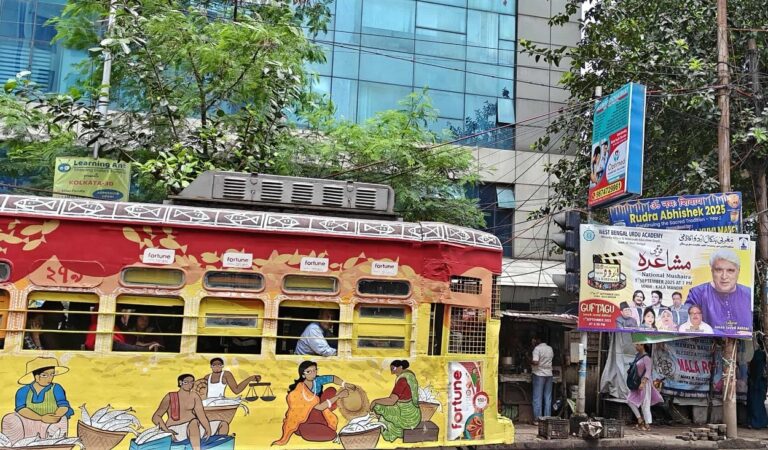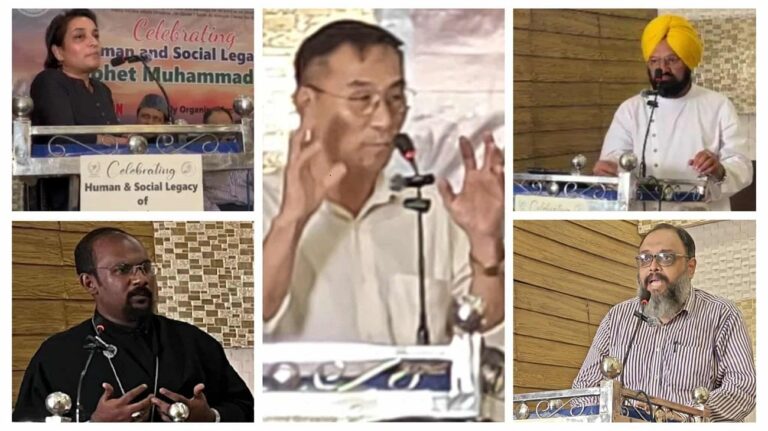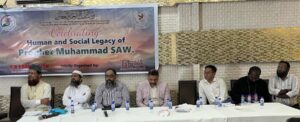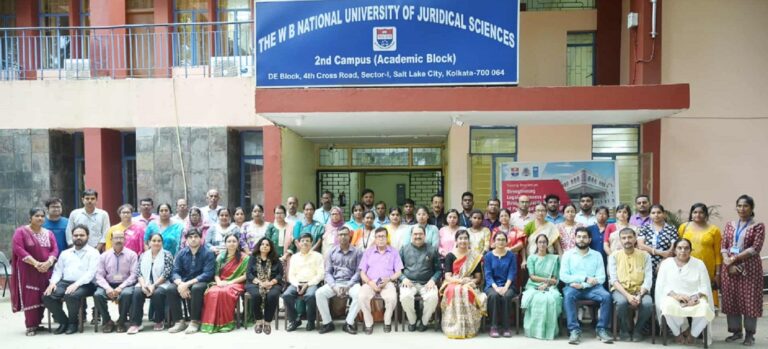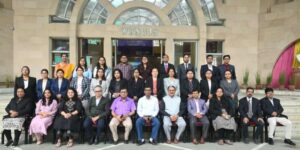[dropcap]O[/dropcap]ne of South Kolkata’s most well-known roads is Leela Ray Sarani, also known as Sarat Bose Road. Cutting across Southern Avenue, many streets flow into Rashbehari Avenue. By one such street, the Samajsebi Sangha was founded in 1946. Among its founders was Leela Ray, who had once worked alongside Netaji Subhas Chandra Bose. Many might assume that this year’s puja theme at Samajsebi Sangha is about social service. But that is not the case. Instead, it is about remembering the history of how, after the communal riots of 1946 in Kolkata, Leela Ray, Meghnad Saha, and others stood with riot victims, leading to the creation of Samajsebi Sangha. Hence, the theme has been named Pather Panchali.
At a time when a non-Bengali filmmaker is attempting to distort history in the name of showing atrocities by the majority community during the Kolkata riots, this puja has sought to highlight how a street in this very city became a symbol of communal harmony. Artist Pradip Das has tried to depict this, and he deserves credit for choosing this moment. He has worked on such concepts before in several Kolkata pujas, but this year’s choice of theme is particularly meaningful. Bengali history, he reminds us, is essentially a history of secularism, often chronicled in print through various presses. To symbolise this, at the entrance of the pandal he has placed a printing press and the cover of a book titled Manifesto of Secular Bengalis. It makes one feel that no matter how hard divisive forces try, Bengal’s soil will remain an unyielding fortress of unity.

A Street That Opened Its Doors in 1946
Every street has its own history, and re-presenting that history for our times is undoubtedly praiseworthy. The neighbourhood around Samajsebi Club also carries its own stories—not just as history but as lived memory. The old louvred windows, car porches, large mirrors, and the people of the area have preserved that memory. When fratricidal riots broke out in Kolkata in August 1946, it was the residents here who opened their doors in the name of unity and peace. This is the history of Samajsebi Club, still remembered by many. Leela Ray, through her association with Subhas Bose, worked with like-minded individuals to bring relief to riot-affected people. After the riots of August, she took the initiative to establish this club, and the puja began that very year. It was never merely a religious festival for the majority community—it stood from the outset as a celebration of social solidarity, communal harmony, and resistance to violence. This is why, even today, the sound of the azaan at the entrance of the puja remains an integral part of its journey.
When films like The Bengal Files spread half-truths, it becomes essential to highlight the resistance that existed in those times. That is what this puja’s theme attempts to do. Beyond the narrative of communal violence instigated by the Muslim League, sections of the Hindu Mahasabha, the British rulers, and Mohammad Ali Jinnah—there also existed resistance and efforts to halt the riots. This too was a major part of that era, and the artist has sought to portray it. Surveillance aircraft, vultures, truckloads of weapons, sirens, and bomb blasts were everyday scenes then. This dark period is shown in the pandal, alongside the humanity that also prevailed. Figures like Leela Ray, Jadunath Sarkar, Meghnad Saha, Sarat Bose, and many others rose to defend Kolkata’s communal harmony, and their contribution has been powerfully depicted.

Trucks That Carried Both Weapons and Relief
All around the pandal are images of trucks. Just as those trucks once carried weapons for riots, they were also used by Leela Ray and Ashrafuddin Ahmed Chowdhury to rescue riot victims. Historian Soumya Basu’s writings mention such examples. When the riots subsided, it was decided that a dedicated organisation should be formed for social service—and thus Samajsebi was born. This year’s 2025 puja has therefore gone beyond ritual, becoming a witness to history. Houses that still stand today have had their façades decorated with images and cut-outs of hope from that time. During the Second World War, 142 Lake View Road housed an American military hospital. Later, its staff joined Leela Ray and her associates in aiding riot victims. Several books record stories of those times: how Haider Ali of old Ballygunge Circular Road was saved by his Hindu neighbours, or how TN Ghosh of Amir Ali Avenue was rescued from Hindu rioters by a Muslim family.
Such stories live on in the memories of the people of this area, where the spirit of secular humanism triumphed over destructive forces. If the scattered newspaper clippings of those days were pieced together, they would reveal an alternative narrative—one that stands against propaganda films like The Bengal Files which rely on half-truths. Offering such alternatives is the true task of an artist, and that is exactly what Pradip Das has done in this year’s Samajsebi puja. This puja is, in essence, a collection of memories. Memories as simple as sharing tiffin at school, where Hindu and Muslim made no difference then, and still do not today. That is why historian Susnato Das’s words resonate strongly within this pandal: “After 1945, the British wanted to continue ruling India from outside, but they feared that if Hindus, Muslims, Christians, and Sikhs united under one flag as they did in Netaji’s Azad Hind Fauj, their rule would collapse.”
The naval mutiny and labour movements of that era displayed such unity. To counter it, the British sowed seeds of communal division, splitting workers and peasants along religious lines. Yet, they ultimately failed. This is why Samajsebi’s Pather Panchali speaks of an alternative vision, one that every Bengali should see. It reminds us how deep-rooted the history of secularism in Bengal truly is. And even though this year’s heavy monsoon rains may have caused much damage, if one gets the chance, one must visit Samajsebi’s puja in South Kolkata at least once.
The piece has been translated from a Bangla piece, published at inscript.me.



